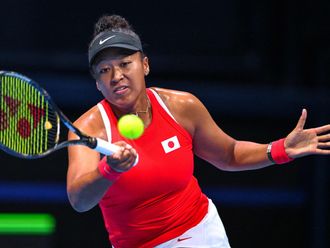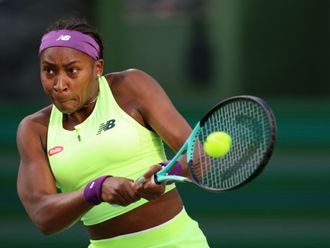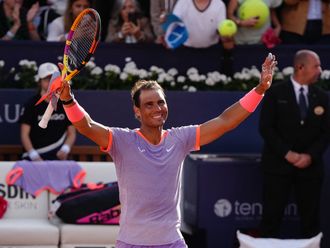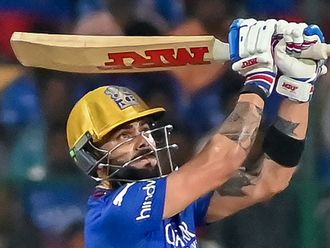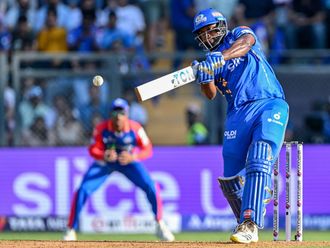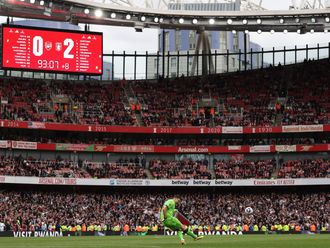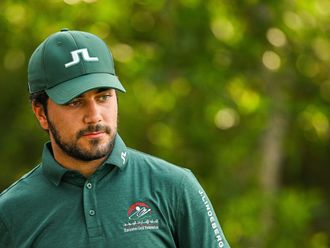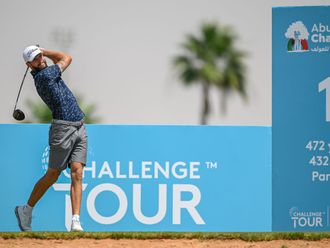London: The Davis Cup, once the centrepiece of the calendar, has for decades flitted like an exotic bird across the landscape, never landing for quite long enough to recapture the public imagination. That might be about to change.
Great Britain’s return to the competition’s world group after an absence of 28 years has, naturally, lifted spirits among Lawn Tennis Association (the governing body for British tennis) staff, players and the team’s hardcore supporters. These are the faithful, the optimists who shared serial disappointment for as long as any owner of a smartphone can remember, then lately have revelled in the unfamiliar glow of success.
However, if Leon Smith’s tight-knit squad can build on the feel-good buzz of February’s qualifying win over the United States in San Diego and overcome the odds to beat Italy on clay in the quarter-final in Naples that starts on Friday, they will win a significantly larger audience than those hardy souls who followed them fruitlessly from Buenos Aires to Vilnius in recent campaigns.
There is a significant commercial as well as sporting prize at stake. Victory over three days at the grand old Napoli Tennis Club would deliver Great Britain a home semi-final in September, almost certainly against Switzerland, led by Roger Federer and Stanislas Wawrinka. You could start queueing today and not be certain of a ticket.
Switzerland have to get past Kazakhstan in Geneva and need no reminding that the Kazakhs, currently ranked 11th in the world, dumped them out of the world group four years ago. Kazakhstan have three survivors from that team but, even so, it would be a seismic surprise if they won again.
Beyond Federer and Wawrinka is a place made for British dreaming. Great Britain have not won the Davis Cup since 1936. They have played in a final once since 1937, when they lost 4-1 to the US in 1978. Nearly all the nation’s tennis history is buried in the past — except that made last summer by Andy Murray.
The Wimbledon champion will again lead the team, more enthusiastically now, it has to be said, than he once did; when he declined to travel with them to Buenos Aires in 2008, his brother, Jamie, could not hide his displeasure. But Murray has since committed to the cause with rousing success, contributing significantly to the squad’s sense of self-worth, and now palpably enjoys the experience, which is something of a safety valve in his grinding schedule on the Tour.
He has long contended that the other players would develop more quickly were they not so dependent on his efforts, asking the awkward question: What did the country want — for him to win a grand slam title or help Great Britain in the Davis Cup? When he burst into tears after sealing a win over Luxembourg in Glasgow in 2011, partnering Jamie in the doubles, his priorities seemed to be reconciled to everyone’s satisfaction.
This time Murray has for allies the experienced doubles specialist Colin Fleming, James Ward and Dan Evans. Also travelling is Murray’s close friend Ross Hutchins, fully recovered from cancer. If the tie looks safe after the opening singles, Hutchins could partner Fleming in the doubles, with the insurance of Murray to play again in the reverse singles on the final day.
But Smith will not let sentiment cloud his judgement — not even for one player he could legitimately claim to have rescued from mediocrity. Since the shrewd Glaswegian took hold of the team in April 2010, Evans, who previously made more noise in bars around Birmingham than on any court, has responded to his quiet brand of encouragement only fitfully. He did not travel well. Indeed, he did not travel much at all, preferring to idle in domestic anonymity.
Success on the ATP Tour has been fleeting, hitting a high point at the US Open last year when he pushed Tommy Robredo all the way in the third round (Robredo went on to beat Federer). But he was unabashed in revealing he felt most comfortable in the team environment and it is there where he has played his best.
That Evans is no certainty to play in Naples is, paradoxically, one reason he will travel with enthusiasm rather than resignation. Once cushioned by grants and the praise of friends, he no longer feels entitled.
He knows he has to earn his place. Smith, for instance, wanted him to stop off in Hawaii after the Australian Open to get accustomed to clay before the tie against the US a few days later but Evans preferred to go home. He did not get picked.
He is back in the picture, though. If he plays — especially with the vim he showed against Russia in Coventry last year — he will not leave much on the Neapolitan clay, even though it is not his favourite surface.
Great Britain are accustomed to travelling as underdogs and it will be no different here, but they might have been handed a break with the likely withdrawal of Italy’s best player, the world No 14, Fabio Fognini, with the recurrence of a chronic thigh injury. The team captain, Corrado Barazzutti, who won the deciding match the last time Italy played Great Britain, at Telford in 1984, will wait until Thursday before ruling him in or out.
If the phrase ‘see Naples and die’ means anything, it surely does in a setting redolent of faded glory. The Carlo d’Avalos centre court looks across the Viale Antonio Dohrn towards the Bay of Naples, where Caligula landed. Mount Vesuvius slumbers in the distance. At the entrance to the club, founded in 1905, graffiti and lime adorn the statue of a man on a horse. There is a whiff of history about it all. It is a good place to make some more.
On the other side of the draw, a full-strength Japan could stretch the defending champions, Czech Republic, who will be without Tomas Berdych in Tokyo; and France, led by Richard Gasquet, should beat Germany in Nancy.



